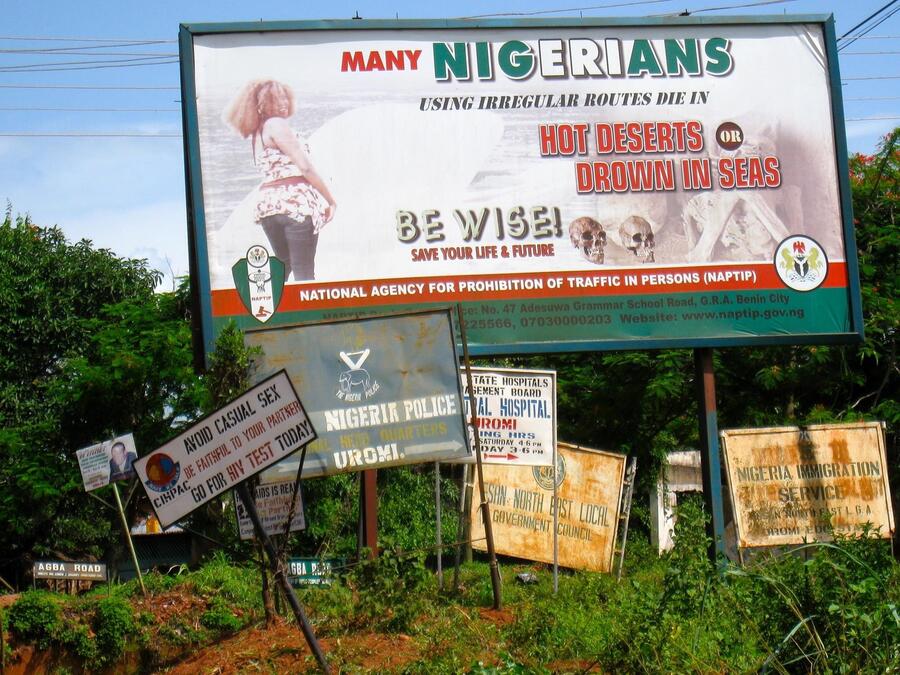News
News Published: 26 April 2021
EASO publishes a COI report: Nigeria – Trafficking in Human Beings

Today, the European Asylum Support Office (EASO) published a Country of Origin Information (COI) report titled "Nigeria: Trafficking in Human Beings".
After the peak of some 47 000 applications for international protection in 2016, Nigerians have sought asylum in the EU+ less frequently: around 23 000 in 2018-2019 and just above 13 000 in 2020. So far in 2021 (January-March), Nigerians lodged over 3 600 applications in the EU+. Since 2018, there has been a gradual increase in the share of repeated applications in the same reporting country. In the first three months of 2021, more than each third Nigerian application in the EU+ was lodged repeatedly. In the last six months (October 2020 – March 2021), the number of first instance decisions increased by about a quarter compared to the preceding six months. In the same period, the EU+ recognition rate for Nigerians was 12 %, stable compared to the preceding half a year. At the end of February 2021, some 14 600 Nigerian applications were pending at first instance. More than two thirds of them were awaiting a decision for longer than six months.
The report, EASO COI Report: Nigeria – Trafficking in Human Beings, is an update and expansion of the 2015 EASO COI report on Sex Trafficking of women in NIgeria.
The first chapter is a general overview of trafficking in human beings in Nigeria, and includes the most occurring types of trafficking. It discusses the profiles of the most probable victims of trafficking. The second chapter dives into the modus operandi of trafficking, including networks and roles of traffickers, the debt system and taking of oaths, and the organisation of travel to Europe. The third chapter deals with the situation of returning victims of trafficking to Nigeria, the support possibilities and shelters, the attitude of relatives and organisations towards returnees. The risks of re-trafficking and the factors influencing possible re-trafficking are also discussed. The final chapter treats the role of the state and state organisations in protecting victims of trafficking and prosecuting traffickers.
The report was drafted by the Netherlands Ministry of Foreign Affairs’ COI Sector, in accordance with the EASO COI Report Methodology. The report was reviewed by COI specialists from Norway, Landinfo and Switzerland, State Secretariat for Migration (SEM), Division Analysis.
The following external experts have reviewed the report: the Austrian Centre for Country of Origin and Asylum Research and Documentation (ACCORD) and Dr Corentin Cohen. Corentin Cohen is a researcher and has been Oxford/SciencesPo’s postdoctoral fellow in 2019-2020. He is a specialist of Nigeria and has researched on networks of sexual exploitation and Nigerian criminal actors in Europe since 2016.
The report can be downloaded from the EASO COI Portal.

